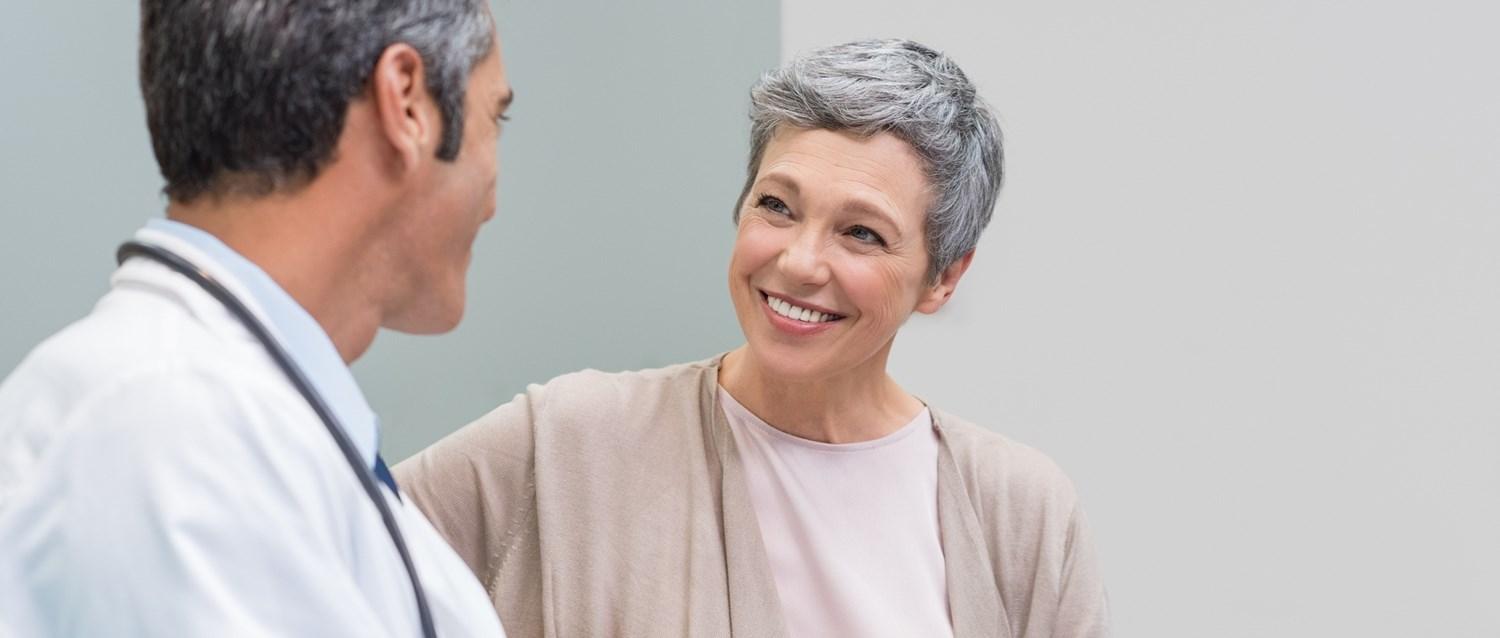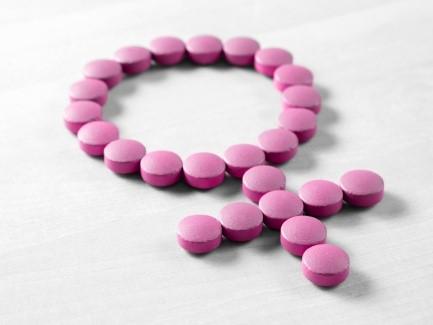
Looking after your health during the menopause
Peer reviewed by Dr Krishna Vakharia, MRCGPLast updated by Lydia SmithLast updated 24 Nov 2022
- DescargarDescargar
- Compartir
The menopause is a normal part of life, but that doesn't mean it's an easy process. Not everyone gets hot flushes, night sweats and vaginal dryness, and some women breeze through this natural phase in their lives - but some of us need a little extra help.
En este artículo:
The menopause usually occurs between the ages of 45 and 55, but sometimes it can happen earlier - and everyone is different. About 80%1 of women get hot flushes and night sweats, which last seven years on average. Statistically, the most effective way to banish hot flushes is hormone replacement therapy (HRT). This does increase your risk of breast cancer, but the risk is small if you just take HRT for a few years and it drops when you stop it.
Other common problems associated with the menopause include vaginal dryness, mood changes, loss of sex drive, and bladder problems. Again, you don't have to suffer in silence - there are lots of solutions out there.
Selección de pacientes para Menopausia y THS

Salud de la mujer
How to ease your perimenopause symptoms
Every woman who lives long enough will go through the menopause. The perimenopause describes the transitional period into the menopause, and it is where most women first experience symptoms. There are a number of options to help manage and relieve perimenopause symptoms, both through clinical services and at home.
por Amberley Davis

Salud de la mujer
Menopausia
La menopausia es el momento en que los ovarios dejan de producir óvulos cada mes, es decir, 12 meses después de la última menstruación. La perimenopausia es el momento en que los periodos son menos regulares y se dice que estás en la posmenopausia cuando tu último periodo fue hace más de 12 meses, y esto no se debe a que tus periodos hayan cesado por otra razón, como el uso de un anticonceptivo que interrumpe tus periodos.
por la Dra. Hayley Willacy, FRCGP
Seguir leyendo
Cambios en el estilo de vida
There are plenty of non-drug alternatives to help with hot flushes. Lifestyle changes, such as avoiding caffeine, keeping your bedclothes light and wearing breathable clothes - ideally in layers, so you can whip off a layer when needed - may be enough.
Increasing the soya in your diet may well protect against hot flushes, because of the phyto-oestrogen it contains, which has a similar chemical structure to oestrogen2. While it's thought to be the oestrogen in HRT that contributes to the increased risk of breast cancer, the same doesn't seem to be true of phyto-oestrogens in soya. Some studies have suggested that even among breast cancer survivors, eating soya isn't associated with an increased risk of recurrence or progression3.
Prevent weight gain
Research suggests that the menopause can lead to significant changes in a woman's metabolism, which has been linked with weight gain3. However, lifestyle factors can also contribute to weight changes.
At around the age of the menopause, you may become less physically active. The menopause can also reduce the firmness of your muscles, making it feel as if you've put on more weight. As you get older, your metabolism slows down, which means you burn fewer calories. And some women are more prone to gaining weight around their midriffs after the menopause.
It can be hard to exercise if you're suffering from hot flushes, but it's more important than ever after the menopause. It helps keep weight down, tone your muscles, improve balance and guard against osteoporosis.
Swimming is great for keeping you cool but it's not weight-bearing exercise, which is important for keeping bones strong. But don't worry - you don't have to sweat in body-hugging lycra to get fit. Try alternating swimming with any other aerobic exercise, such as brisk walking, tennis, keep fit classes, or dancing. Find an exercise buddy to reduce the chance of giving up when life is too busy, or join a rambling club to meet new friends and take in our glorious countryside too.
Seguir leyendo
Keep your bones strong
Bone health is key after the menopause. You can't feel it, but your bones become less strong from your 40s or even sooner, and this process speeds up after the menopause5. This puts you at higher risk of breaking a bone due to osteoporosis. Regular exercise, avoiding smoking and excess alcohol, taking a daily 10 microgram vitamin D supplement and increasing the calcium in your diet will help. Sources of calcium include dairy products, tinned fish with bones and green leafy vegetables.
It's important to remember that there are other risk factors for your bones, including going through the menopause before the age of 45, taking regular steroid tablets, having rheumatoid arthritis or bowel disease (coeliac or Crohn's disease). Being very immobile, having osteoporosis in the family and being very underweight can also be risk factors.
HRT protects against osteoporosis. If you reach menopause below 45, speak to your GP - you should take HRT until you're at least 50 to protect your bones.
Look after your skin
After the menopause, lower levels of the female hormone oestrogen mean you make less collagen, making you more prone to wrinkles6. Protect your skin from the sun more carefully than ever and opt for a hydrating moisturiser. Avoid long hot baths, be liberal with body moisturisers and pay special attention to hands, too.
Thinning hair is a fact of life for some women as they get older, and it can run in families. It's worth making sure you have enough protein and iron in your diet, as being short of either of these can affect your hair quality.
Seguir leyendo
Para saber más
Efficacy of phytoestrogens for menopausal symptoms: a meta-analysis and systematic review.
American Institute for Cancer Research, Soy: Intake does not increase risk for breast cancer survivors.
Diet may counteract menopause metabolism change, ZOE study shows.
Stevenson et al, Effect of oestrogens on skin aging and the potential role of SERMs.
Historia del artículo
La información de esta página ha sido revisada por médicos cualificados.
24 Nov 2022 | Última versión
30 Oct 2017 | Originally published
Autores:
Dra. Sarah Jarvis MBE, FRCGP

Pregunte, comparta, conecte.
Explore debates, formule preguntas y comparta experiencias sobre cientos de temas de salud.

¿Se encuentra mal?
Evalúe sus síntomas en línea de forma gratuita